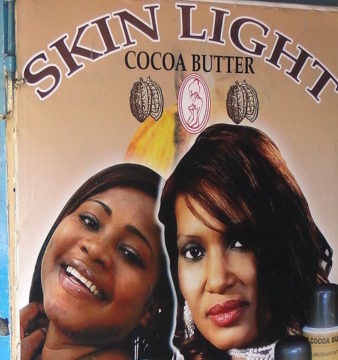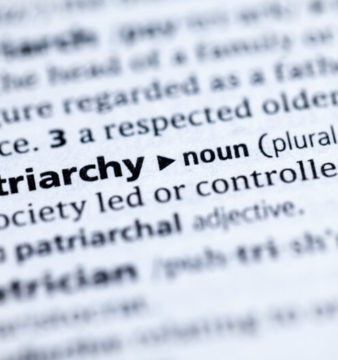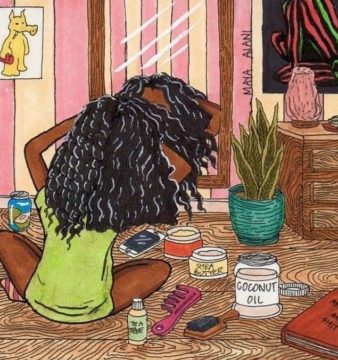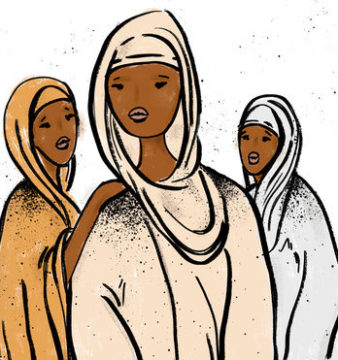Dear South Sudan, Peace is Within Us
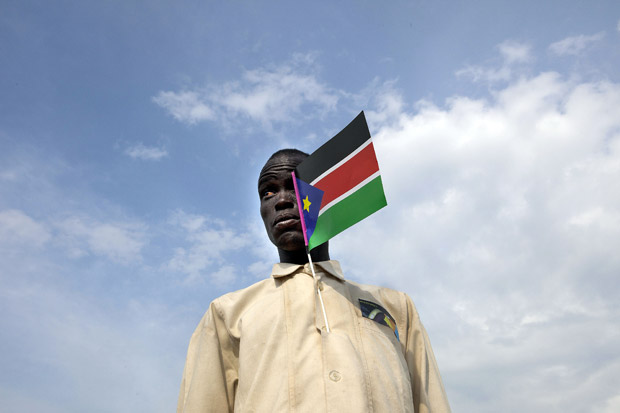
A Sudanese man holds the national flag attending a cultural festival to celebrate the South Sudan’s anniversary 7 July 2012 in Juba, South Sudan. (Paula Bronstein/Getty Images)
The beginning
South Sudan gained its independence from Sudan and became an independent country on 9 July 2011, following a referendum that passed with 98.83% of the vote.
Not long after our celebration of the greatest victory we have achieved, we fell into another civil war in 2013 between the government and opposition forces. In December 2013, President Kiir accused his former deputy Riek Machar and 10 others of attempting a coup to overthrow the government which led to a bloody massacre across the country, causing the death of over 100,000 people and displacing more than four million.
In January 2014, the first ceasefire agreement was reached and quickly violated within days. Negotiations were then mediated by the Intergovernmental Authority on Development (IGAD) and a peace agreement known as the Compromise Peace Agreement was signed in August 2015.
Machar returned to Juba in 2016 and was appointed the first vice president, following a second breakout of fighting that escalated within Juba. The Sudan’s People Liberation Movement – In Opposition (SPLM-IO) fled and Machar was replaced by Kiir as First Vice President by Taban Deng Gai.
In August 2018, another power sharing agreement came into effect after Sudanese President Omar El-Bashir came in as a mediator to help the two parties negotiate and reach a common goal. A successful peace deal was then signed in September 2018. Machar returned to Juba for a peace day celebration in October after two years in exile. Regional leaders from Ethiopia, Somalia, Uganda and Sudan also attended the celebration to witness the end of five years of civil war.
I was inspired to write this article because I want to see this peace deal through. I want to see a better South Sudan, one that we once wished and still hope for. We have signed peace deals before but they were never correctly implemented, we must not let this one fail.
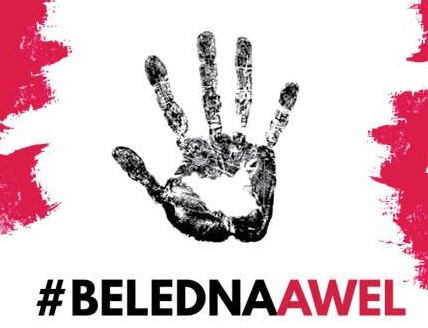 The reality
The reality
The truth is that peace is within us, within you and me and not on a signed paper. If we are not ready, as individuals, to stop all negativity, to throw away all grudges, to move forward and start afresh, we will never have peace.
There are a lot of things that divide us, but one thing that unites us, or should unite us, is that we want to see our country succeed. We want it to stay great and become even better. So what’s next? I think this is a particularly important question that we should ask ourselves at this point in time.
I believe it’s difficult for a country to be great without a common understanding between its people and respect towards one another. Let’s, for a moment, set aside everything else and starting with a blank slate, think about how we can make our country great.
Can we trust everything they [the government] tell us? No.
Admittedly, I am still struggling with being patient, but, I know I must have faith. This is our responsibility as much as theirs and we must do our part to help.
We’re South Sudan today not because of the efforts of any one person, but because of thousands of South Sudanese men and women who fought tirelessly to get us our motherland. It was never a one man’s job. Our power is in our unity and so, it’s not the President and Dr Riek’s problem alone. It’s our problem and our job to bring forth peace.
Junub Sudan survived decades of political storms, and that teaches me the value of being resilient and holding on to one’s faith. For it is our faith which makes us strong and aides in discovering our authentic selves and our destiny. In our society, we are stuck in a perception of separateness and otherness. We’re so quick to lose our sense of decency and respect in this political climate, knowing that, at the end of the day, politics is a dirty game where we stand in opposing positions and fight for what we believe is right.
The question is: who are we going to be? To be able to move forward as a civilized society, and to get to exactly where we want to go, we must listen and welcome everyone with kindness and patience. We must keep destructive anger, blame, and shame as methods of change and persuasion in check.
If we want to destroy all that is destroying our society we must rebuild our society from scratch by being open-minded and accepting everyone irrespective of who they are. Think of it as another privilege or opportunity to see how we can build a unique loving society for us and our children.
 Trust the process
Trust the process
I know we are all rather sceptical about this peace but we need to let go in order to make a real difference in South Sudan.
But how do we get started? During troubled times, when our vulnerability is mixed with dejection, anger, anxiety, or shock, a desire arises in the heart to heal and mend. We need to ask ourselves on how to use this desire as a motivator to mend and heal our hearts and our society?
As a student of journalism and communication skills majoring in public relations and media management, for years, I’ve been asking myself, how we can keep our hearts open and clear, even in the face of the violence and suffering we witness every day either directly or (more frequently) indirectly?
There is a quote: ‘Orient back to love, balance, and peace in the midst of what often appears to be a fractured, violent world, to shepherd ourselves back to wholeness and kindness.’ And that is what we can do, we can bring South Sudan back to wholeness and togetherness. With positive energy we attract nothing but positivity.
The South Sudan I want
I want our children to have a rich childhood, where they’re provided with a vivid tapestry. Where they’re loved, nurtured and exposed to all the beauties of life, each experience leaving them with the tremendous pride of being South Sudanese.
I want our children to travel everywhere in South Sudan, every state, every village and all points in between, so they can learn to appreciate the cultural diversity represented in each community and can discover life-enriching gems and gain memories for a lifetime.
That’s the South Sudan I want, for you, me and the future generations to come.
It is not too late to fix our country. This is our collective responsibility and we can only make things better by becoming better people today than we were yesterday. For this country to improve, we have to come together for the common good. We have to work to improve the institution, not destroy it. Progress is never easy.
Let’s stay united. One nation, one people, ONE LOVE.
Sending love to all my people in each and every corner of the world. You all matter and you’re all worthy.
 Nana Alfred Taban, a 22-years-old writer and part-time journalist in Juba Monitor. The AnaTaban Member is very passionate about empowering the public and making a difference. She is currently a third-year journalism and communications student majoring in public relations and media management.
Nana Alfred Taban, a 22-years-old writer and part-time journalist in Juba Monitor. The AnaTaban Member is very passionate about empowering the public and making a difference. She is currently a third-year journalism and communications student majoring in public relations and media management.

